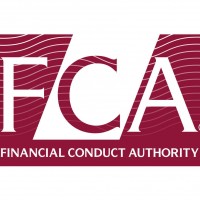
It added that the guidance will be reviewed within the next three months and payment holidays could be extended if appropriate.
“We will review this guidance in the next three months in the light of developments regarding coronavirus and will issue amended guidance extending the period of the payment holiday if appropriate,” it said.
The regulator emphasised that those taking a holiday should see no impact on their credit score and that firms should not be investigating the reason for requesting the loan.
Borrowers currently in arrears should not be treated any differently to those who are fully up-to-date with their payments.
And lenders should be proactive in discussing a payment holiday if customers suggest they could potentially face payment difficulty.
The regulator added that it could take how firms used the payment holiday when it came to future enforcement cases.
In its published guidance, the FCA said: “A firm should give customers adequate information to understand the implications of a payment holiday, including the consequences (if any) for the total amount payable under the mortgage contract, the term of the mortgage contract and the amount of contractual monthly instalments.”
It added: “A firm may decide to put in place an option other than a three-month payment holiday, if it is appropriate to do so in the individual circumstances of the case and it is in the best interests of the customer.
“This could include a payment holiday of fewer than three months, if the customer requests a shorter payment holiday. This guidance does not prevent firms from providing more favourable forms of assistance to the customer, such as reducing or waiving interest.”
Repossessions
For repossessions, the FCA made it clear that firms should not commence or continue repossession proceedings against customers at this time, “given the unprecedented uncertainty and upheaval they face, and government advice on social distancing and self-isolation”.
This applies irrespective of the stage that repossession proceedings have reached and to any step taken in pursuit of repossession.
It added that where a possession order has already been obtained, firms should refrain from enforcing it.
“We consider that commencing or continuing repossession proceedings at this time is very likely to contravene Principle 6 and MCOB 2.5A.1R – absent exceptional circumstances (such as a customer requesting that proceedings continue),” it said.
“We will not hesitate to take appropriate action where necessary.”
Firms should also ensure that their customers are kept fully informed and discuss with them the potential consequential impacts of suspending any moves towards repossession.
Treat customers fairly
Throughout all this, the FCA highlighted that the guidance builds on obligations by firms under Principle six of its rules and MCOB 2.5A.1R to act in the interests of customers and treat them.
Interim chief executive Christopher Woolard said: “We want to help firms support consumers during these unprecedented times.
“Our mortgage guidance underpins the actions taken by mortgage providers and will give confidence to both consumers and firms. In particular, we are making it clear that no responsible lender should be considering repossession as an appropriate measure at this time.
“Small businesses can be confident that their access to funds can be based on how their business has performed in the past and its future prospects – not its position today.”















